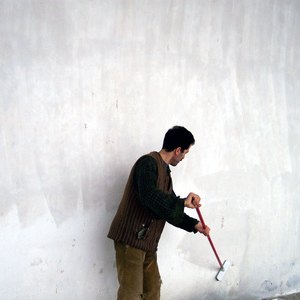
Estimating is one of the most important skills a house painter can have. Bid a project too high and you will likely lose the contract. Bid too low and you may not make money. Different painters use different methods of estimating, including hourly rates. Square footage remains the most popular means of estimating, but learning to calculate the price per square foot can be challenging.
Prepare a piece of scrap paper. Make separate sections or columns for walls, floors, ceilings, trim, doors and any special areas such as decks or fences. If the project spans multiple rooms, leave plenty of space in each column.
Measure each room for interior painting or a section of the exterior separately. Within each area, measure each type of painting (walls, ceilings, etc.) separately. To save time, measure the length of each wall and add the lengths together. Then multiply the total by the height. The result is the square footage of the walls in that room. Ceilings, floors, decks and fences are also measured by square foot. Multiply the width by the height.
Trim pieces such as baseboards, door casings and crown molding are measured in linear feet. Measure the length of each separate piece and add the results together. Do not multiply by the width of the piece. Doors are usually priced as an individual unit, doubled if you will paint both sides of the door.
Add the results for each type of painting (walls, ceilings, etc.) together for the entire project. Do not add different types of painting together, as each type is generally priced separately. You should now have the total square footage of the walls, ceilings, floors and decks, the total linear footage of the trim and the total number of doors.
Consult a written painting price guide to determine the average price per square foot or linear foot in your area. Prices vary dramatically between regions, so look for a guide designed for your state. Price guides are available online. Write down the average price for each type of painting and multiply that price by the measurements you took. Add the totals together for a rough estimate of the total cost of the job.
Consider the difficulty of the proposed job. If the job is standard, a 20 percent markup is common to account for unforeseen circumstances. Consider marking up particularly difficult jobs by another 10 or more percent. Likewise, if the job is particularly easy or fun, consider marking the price down a bit.
Tips
Re-figure the price for each type of painting based on your adjustments. Multiply the average price for each type of painting by the measurement you took, and then add or subtract the adjustment. The result is your final price per square foot or linear foot for each type of work. Write down the total measurement, price per square or linear foot and total for each type of painting on the bid sheet. Add the totals together for a final price for the entire job.
References
Writer Bio
Lisa Fritscher is a freelance writer specializing in disabled adventure travel. She spent 15 years working for Central Florida theme parks and frequently travels with her disabled father. Fritscher's work can be found in both print and online mediums, including VisualTravelTours.com. She holds a Bachelor of Arts in psychology from the University of South Florida.

